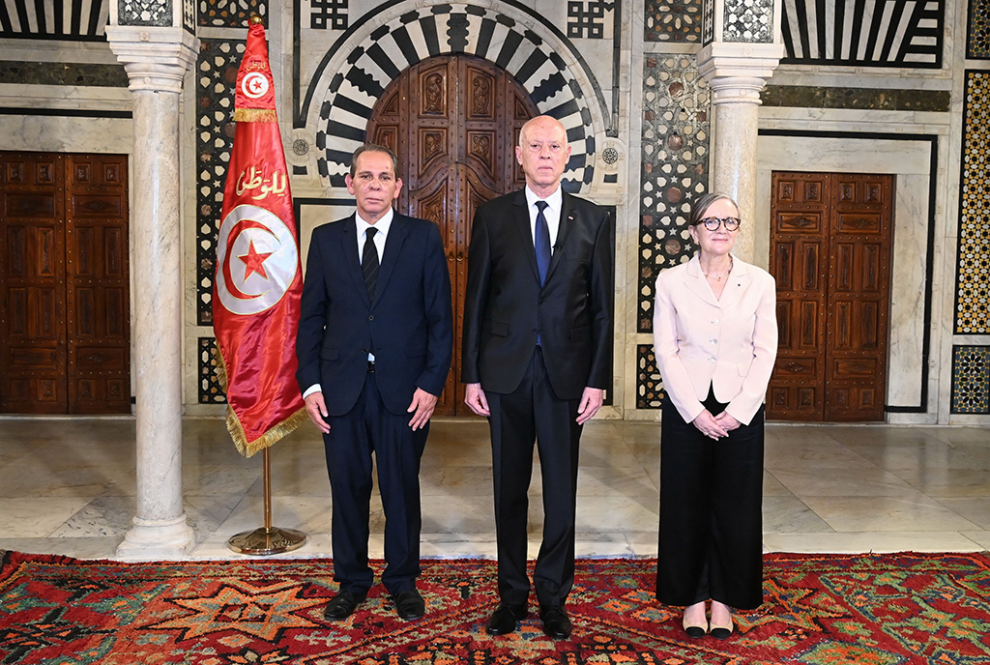Tunisian head of government Najla Bouden was fired without explanation on Tuesday by President Kais Saied.
What are the reasons and what are the risks for an over-indebted country seeking foreign aid? President Saied was unhappy, according to media reports, with his handling of the shortage of flour, and therefore bread, in subsidized bakeries.
“The government is a set of fuses, the important thing for the president is that nothing is ever his fault”, essayist Hatem Nafti explains to Afp, denouncing “a regime that lives on scapegoats: judges, prisoners of conscience and lately sub-Saharans migrants”. According to economists, the shortage of subsidized baguettes is due to a shortage of grain supplies because suppliers are no longer giving credit to Tunisia, which is in debt for 80% of its GDP.
Since the 1970s, the state has centralized the acquisition of many basic products (flour, oil, sugar, milk, petrol) in order to put them back on the market at affordable prices. According to Nafti, Bouden, appointed in October 2021, had become “very unpopular in the president’s entourage” and even in the opposition because she was simply considered a “reassuring showcase for Westerners”. Faced with the bread crisis and the deteriorating economy, “curiously it is the government and the opposition that bear the brunt of popular anger while the regime is hyper-presidential”, believes political scientist Youssef Cherif of the Columbia Global Centers. Changing prime minister could serve to “show that the president is listening to popular demands,” he said. Democratically elected in October 2019, Saied granted himself all powers on July 25, 2021 and rules by decree. After this coup, he has already dismissed half a dozen ministers.
What are Kais Saied’s intentions? Some experts have foreseen the appointment of a political profile to help the president prepare for the presidential elections in autumn 2024. But the new head of government Ahmed Hachani, a retired former central bank executive “is by no means a former comrade of the rector of the Faculty of Law”, emphasizes Nafti.
His name and background don’t matter. He is there only to implement the wishes of the president”, according to Nafti. “Saied does not believe in the independence of the government or of the ministers”, underlines the political scientist Slaheddine Jourchi. It is probable, according to Cherif, that “the sovereign ministries will not be affected and that the reshuffle will be limited to ministers who have had problems in recent months. Economy Minister Samir Saied, at the forefront of talks with the IMF over a new $2 billion credit could be on the list. “With Kais Saied, I’m on two irreconcilable lines, it would be logical,” Nafti points out. What are the international consequences? It is difficult to imagine a continuation of the discussions with the IMF, which Saied contests by proposing “a new global financial framework” Hundreds of public companies in debt, two measures proposed by the Bouden government in exchange for the loan. Saied says he is looking for funding elsewhere. “This is in line with his Third World and populist rhetoric and helps consolidate his popularity. He will achieve this with the help of Europeans and some Arab countries, such as Saudi Arabia which recently announced a loan and a donation of 500 million dollars The EU concluded in mid-July a “strategic partnership” with Tunis, which provides for the payment of 255 million euros this year, of which 150 million as a direct contribution to the budget.
“What matters most to Europe is that Kais Saied continues to protect its borders and keep Saharan migrants,” explains Nafti. This aid, as well as tourist revenues and remittances from the diaspora, “will give public finances a break until the winter”, according to Cherif, but “other funds will be needed for the future”. and the risk of “non-payment will continue to be an option”.
Source : ANSA NEWS

















Add Comment